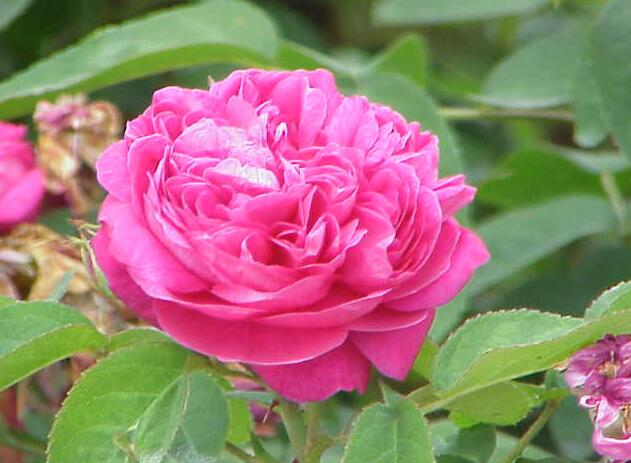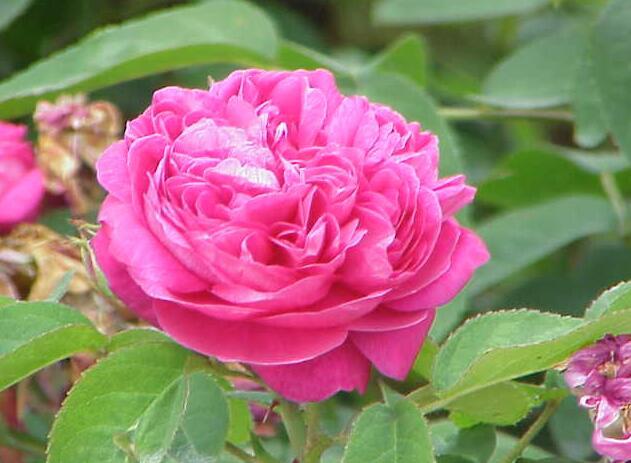
For over 400 years, the Bulgarian Rose Valley has been considered one of the world’s centers for rose oil production, mainly cultivating Rosa damascena. According to a recent news report, as of 2009, Bulgaria maintains around 3,600 hectares (8,895 acres) of rose plantations, 2,500 (6,177 acres) hectares of which were planted after 2001.
Rosa damascena, more commonly known as the Damask rose, or sometimes as the rose of Castile, is a rose hybrid, derived from Rosa gallica and Rosa moschata. Further DNA analysis has shown that a third species, Rosa fedtschenkoana, is associated with the Damask rose.
The flowers are renowned for their fine fragrance, and are commercially harvested for rose oil (either "rose otto" or "rose absolute") used in perfumery and to make rose water and "rose concrete". The flower petals are also edible. They may be used to flavor food, as a garnish, as an herbal tea, and preserved in sugar as gulkand.




 A single purchase
A single purchase









